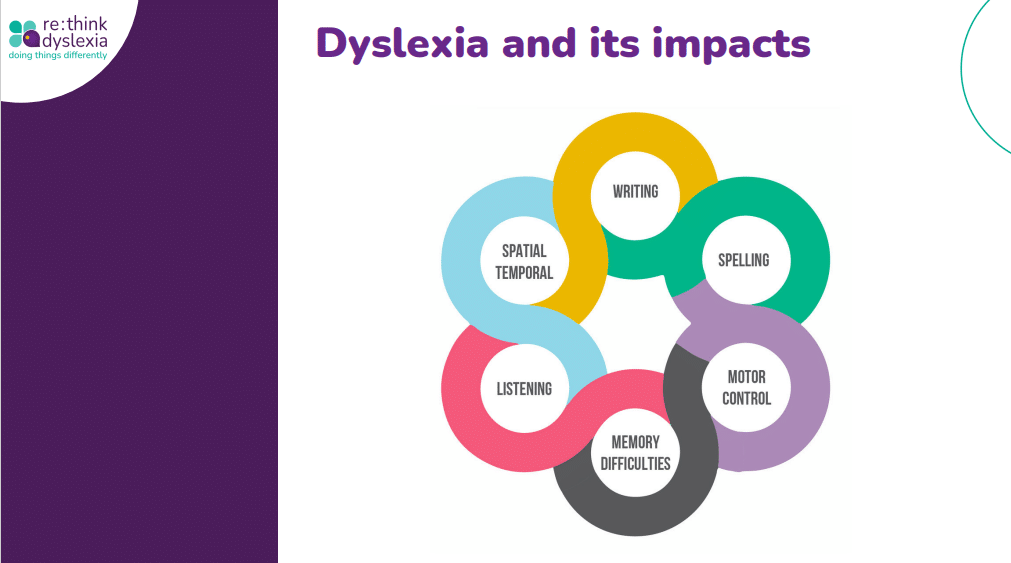Webinar highlights: Diversity of Thought and Dyslexia at Work
On Wednesday 24 May 2023, we were excited to host an educational and thought-provoking webinar on dyslexia in the workplace.
Industry experts Shae Wissell – Principal Coach and Consultant – re:think dyslexia, Sally Close – Business and Leadership Improvement (OD) Consultant – Acronem Consulting Australia and Katrina North – Chief Inclusion Officer – Inclusion by Design | Inclusion, Diversity and Belonging Leader – Avanade, shared their first-hand experience with dyslexia in at work and gave us some very interesting insights into how neurodiversity awareness and minor adjustments can make a huge impact on creating a more inclusive and supportive workplace.
Read our highlights and watch the webinar replay video to find out more.
Webinar replay
What is dyslexia?
The general understanding of dyslexia is that it’s a learning difficulty that affects reading, writing, and spelling abilities. A more accurate description of dyslexia is a genetic difference in someone’s ability to process information. This simply means that a person with dyslexia may think and learn differently than a neurotypical person.
Dyslexia is part of the neurodiversity spectrum, which includes other conditions related to processing or cognitive differences, such as ADHD, autism, dyspraxia, dyscalculia, and Tourette’s.
According to the Australian Dyslexia Association, around 10% of the Australian population are dyslexic – that means 1 in 10 of your colleagues may be affected and may require accommodations in the workplace.

Signs of dyslexia that may be observed in the workplace
Understandably, revealing a learning difficulty can be a daunting prospect in the workplace and this anxiety can hold back those with dyslexia from asking for help. This means that their behaviors can occasionally be misunderstood as a lack of ability, dedication, and inattention.
Most commonly, symptoms of dyslexia include struggling to formulate thoughts quickly enough to participate in conversations and confusing words within sentences and letters within words. Not only that, but struggling to schedule work, making deadlines and recollecting and recording the contents of meetings and messages are frequent signs of dyslexia.
Managing dyslexia and neurodiversity in the workplace
In the workplace those with dyslexia may struggle to get their thoughts on paper, including trouble writing emails, reports, briefs, spelling, grammar, and sentence structure. It can take longer to read and understand what they are reading. Employees with dyslexia may need extra time to complete tasks especially those involving reading, writing and editing. Many dyslexics don’t feel it’s safe to disclose their dyslexia to their direct line manager. Instead, they hide it and implement their own compensatory strategies instead of accessing the reasonable workplace adjustments they need.
Recognising the signs and encouraging an open conversation about dyslexia, will ensure that those living with it, can reach their full potential and enjoy work, whilst feeling fully supported by their employers.
So how can employers support employees with dyslexia?
- Undertake whole of organisation awareness training
- Provide dyslexia specific workplace training for managers, leaders, and HR
- Creating safe environments for employees to feel it’s okay to disclose their disability
- Create easy access to workplace adjustments that support spelling, grammar, writing and reading
- Work within a strength-based framework rather than focusing on deficits.
Addressing recruitment challenges faced by Dyslexic
Dyslexic individuals face significant challenges in the recruitment process, particularly when it comes to written communication, standardised testing, interviewing, and a lack of understanding from employers and recruiters.
To overcome these barriers, employers and recruiters can adjust their recruitment strategies for dyslexic individuals and educate others about dyslexia. Possible adjustments could include:-
- change some written communication into recorded audio or video
- seek out testing that can specialise in accommodations for dyslexic individuals
- allow extra time or a separate testing environment
- Provide accommodations such as a quiet environment, or breaks during the interview process
Tools and extra resources
- Webinar slides
- Factsheet – You Don’ Look Dyslexic
- Factsheet – Adults with Dyslexia – demands on adulthood in Australia
- Factsheet – Leading diverse workforces
If you’d like to hear more about upcoming events click here – or to discuss your career or hiring needs, please contact one of our Frazer Jones consultants.



